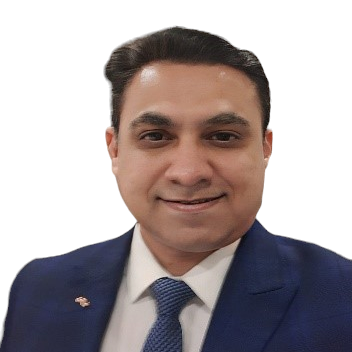
I once had all of my money sitting in my savings account earning a measly 4% p.a. for almost 15 months.
That is what being a corporate coolie can do to you. Point is we all begin somewhere, but begin we must. You don’t become a better boxer by practicing shadow boxing.
I’ve had my share of bloopers in the first couple of years of equity investing, the biggest mistakes happened when I held onto the wrong business for too long. Let that sink in, investing for the long term in the wrong businesses is what hurts you the most. That’s when your invested capital evaporates and one starts seeing the stock market as a scam run by an evil, invisible cabal. An FD starts looking like a secure investment to most people who “dabble” in equity investing.
When I made the move from a safe and steady IT management role to a boutique wealth management firm 3 years after my MBA, it wasn’t a particularly well thought out move. I just wanted out and was lucky enough to have joined an organization which gave me time to find my feet, though I eventually turned out to be an NPA for them. Those were tough years professionally but that is where my efforts into investing started paying off, it takes time for the numbers to show up.
Some of my biggest investing lessons have been counter intuitive
- Investing for the long term can really hurt you if you do not know what you are doing
- Higher risk does not necessarily lead to higher return, the best investors minimize risks
- All abnormal wealth creation results from concentration, diversification makes sense when you have something to lose or have liabilities to pay for
- Timing matters, even if you can’t time the markets well enough consistently
There is something else that is not apparent to the average person, the richest people in the world are all investors. Before you disagree, do remember that every entrepreneur is an investor too. They hold substantial stakes in the businesses they run which eventually turn out to be successful. It is not the executing well that results in wealth creation, it is their substantial equity ownership that moves the needle. Excellent execution can get you a handsome salary but not much beyond that. Whereas substantial ownership in a good business can potentially lead to riches over the long term.
Speak to any old timer at an Infosys or an HDFC Bank, it was not the SVP/CXO designation that got them to a 50 Cr net worth. It was their ESOP holding, which is a form of ownership. Talk to any person who joined Wipro in the early 90’s and is in senior management today, his net worth will most likely be less than one third of his luckier peer who joined Infosys at the same time.
In the 90’s investors had to manually search around for annual reports and make an effort to invest into good businesses. Today one can sit in a Tier 4 town in India and buy good businesses due to the ubiquity of technology and the resultant ease of investing. One does not need the approval of these businesses to become shareholders.
Vikram Somany, Ashok Kajaria and Jayadev Galla did more for me than all of my network put together. Before you wonder, they are the promoters of Cera Sanitaryware, Kajaria Ceramics and Amara Raja Batteries – all listed companies and each one a leader in its industry. I have never met them till date but I owe a healthy % of my net worth to them. Rather than buy a car in 2011, I invested that capital into these stocks. They each went up more than 5 times over the next 3 years. Sometime in 2014 I cashed in part of the profits and invested the proceeds into another business that looked very promising and was growing revenue at 30%. Over the past 6 years my investment in this company has gone up in value to 8 times.
For the record I still hold all these stocks.
Wrong statement. I still own all these businesses and they continue to reward me.
This is what equity investing can do for you over the long term, if done right. I obviously have had some losers during this journey but none of them have set me back by more than 20% of the capital I invested into the business. The discerning few would have made the following observations by now
- Not making costly errors is the underappreciated part of investing
- It is not just the strike rate that matters, but also the sequence of hits and misses
- Delayed gratification is necessary, especially for those on a salary
If you make the mistake of extending your consumption well beyond your cash inflows early on in your career, you might as well forget wealth creation. Earn well, save well and invest well. The second step needs conscious effort, I can at most help you with the third step.
There is another aspect to investing that rarely receives the attention it deserves, accumulating worldly wisdom and developing the ability to put skills sets learned across different domains to conscious use. I am a better investor because I have managed P&L across industries, I know what it takes to acquire and keep customers. I do not have romantic notions of what value addition looks like; many research analysts do not have a ground up perspective of how business is actually conducted. Especially in a market like India.
Business analysis and investing is not just about going through spreadsheets, annual reports and building excel models. The best investors do not have a CFA, some of them don’t even have a formal degree in finance. It is just that they understand businesses, risks, incentives and people far better than their better educated peers do. They also have the guts to put their money where their mouth is and to stay the course.
My efforts at getting better at equity investing have already paid off more than my degree has. In 4 years out of the past 7, my investment income has exceeded my operating income. If you do the math, this is what financial independence looks like. Does not mean I am rich yet; it just means I don’t need to trade my time for a fixed salary any more. Life isn’t a bed of roses but it surely beats the hell out of wasting my time in doing things I do not care about. Like wasting two hours a day in meaningless reviews that get you nowhere but help your bosses keep their jobs.
Most employees today do not have notable retirement benefits other than their PF, unless they make it a priority during their productive years. Career longevity no longer predictably extends into the 50’s, some people will see their employment prospects diminish exactly at the time they need it the most. People who get laid off in their mid to late 40’s rarely ever get back into the race. We are a generation that is sitting on a potential landmine without realizing so. Job security is passé. The “safe employers” of today have this peculiar tendency to promote people up to their level of incompetence and then lay them off when convenient. They don’t owe their employees anything other than a salary; least of all, long term job security.
It is unlikely that you will retire happily at the age of 60 and get a gold watch and a healthy pension for life on your last working day.
Start your journey towards financial independence today. You are going to need it sooner than you think you do.








